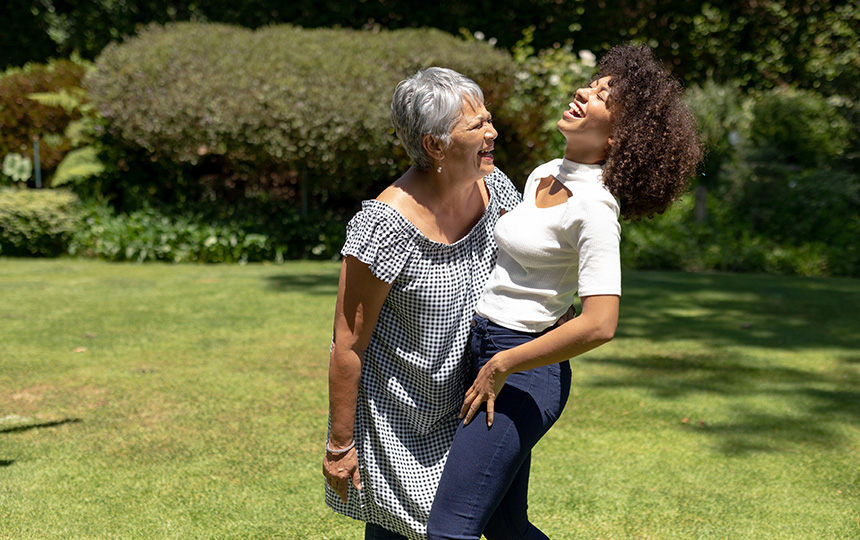Caregiver relationships with the older adults in their care can be emotionally rewarding yet challenging. Addressing the common senior-caregiver relationship concerns is important to achieve a balanced and professional dynamic. As a caregiver, your attachment to a family member you are taking care of should be managed carefully to avoid emotional strain or boundaries being crossed.
Establishing Clear Boundaries
It is common for caregivers to develop strong emotional connections with the elderly individuals they care for. While it is natural to care deeply for your loved ones, maintaining a professional boundary is vital. This helps you manage the emotional load of caregiving while also seeing to it that the focus remains on the care and well-being of your family member.
To set boundaries, it is helpful to have open communication. Discuss expectations with your loved ones or other family members to make everyone understand the limits of your caregiving role. This can prevent misunderstandings and protect the emotional health of both parties.
Managing Emotional Attachment
Emotional attachment is often a concern in caregiving. It can be challenging to separate personal feelings from professional responsibilities, especially when caring for a family member. However, becoming too emotionally involved may hinder your ability to provide objective care.
To manage emotional attachment, regularly remind yourself of the purpose of your caregiving role. Take time to reflect on your relationship and consider seeking support from other caregivers who have faced similar challenges. This will help you stay emotionally grounded.
Addressing Burnout and Compassion Fatigue
Caregivers often face burnout, which can stem from long hours and emotional strain. Compassion fatigue is another concern, where constant caregiving leads to emotional exhaustion. Recognizing these signs early can help you take action before it affects the care you provide.
You can avoid burnout by practicing self-care and setting realistic expectations for yourself. Take regular breaks and seek assistance from other family members or professional caregivers when needed. Balancing your caregiving duties with your own well-being is key to avoiding compassion fatigue.
Balancing Personal and Professional Roles
Caregivers who are also family members face the unique challenge of balancing personal and professional responsibilities. It can be difficult to switch between these roles, which may lead to confusion or frustration for both you and your loved one.
Create a schedule that distinguishes caregiving duties from personal interactions. Establish regular family time that is free from caregiving responsibilities to foster a healthy personal relationship. This helps in maintaining balance between being a caregiver and a family member.
Encouraging Independence in the Elderly
One of the common relationship concerns between caregivers and older adults is the struggle over independence. It is easy to become overprotective and take on too many responsibilities for your loved one, but this can lead to a loss of autonomy for them.
Encourage independence by allowing your family member to handle tasks they can still manage. Providing guidance rather than taking over can boost their self-esteem and reduce tension in the relationship. This approach respects their dignity and fosters mutual trust.
Handling Conflict and Disagreements
Caregiving can sometimes lead to conflicts, especially when opinions differ on care decisions. Disagreements between caregivers and family members are not uncommon, but they can strain relationships if not addressed effectively.
When conflicts arise, focus on clear and respectful communication. Acknowledge each person’s feelings and work together to find a solution. Involving a mediator or professional if needed can help resolve disagreements and keep the relationship healthy.
Seeking Outside Support
Caregivers do not have to manage all the emotional and physical challenges of caregiving alone. Seeking support from outside resources, such as counseling or caregiver support groups, can provide much-needed relief. These groups offer a safe space to discuss concerns with others in similar situations.
By reaching out to external support systems, you can gain perspective and learn strategies to manage your caregiving role effectively. This reduces isolation and provides emotional support when navigating tough relationship dynamics.
Maintaining a Healthy Caregiver-Patient Relationship
Maintaining a healthy relationship with your family member is not always easy but is necessary for both your well-being and theirs. Being mindful of your emotional health, while providing the best care possible, will strengthen the caregiving experience.
Always keep communication open and allow your loved one to express their feelings. Be patient and empathetic, but also know when to seek help. Striking the right balance between care and personal well-being makes sure that both parties maintain a positive relationship.
Fostering Healthy Caregiver-Patient Dynamics
Addressing common relationship concerns between caregivers and the elderly is vital for both emotional well-being and effective care. When boundaries are respected, emotional attachments are managed, and communication remains open, caregiving relationships can thrive. Support systems, clear expectations, and encouraging independence are just a few ways to keep these relationships healthy.







